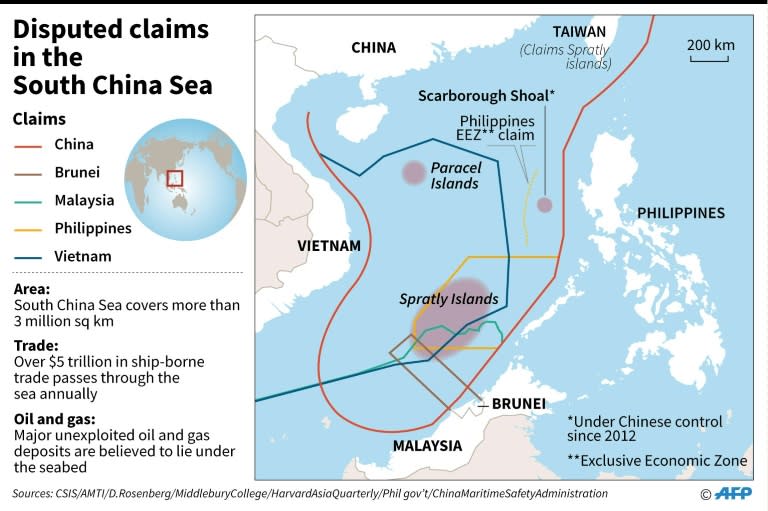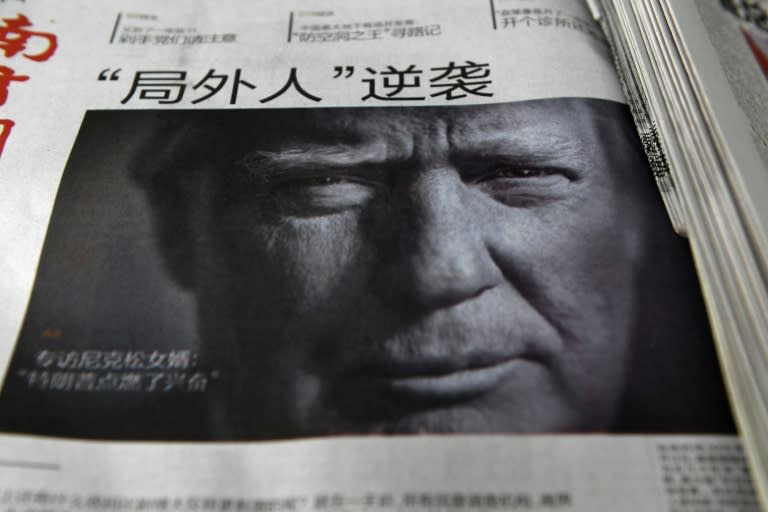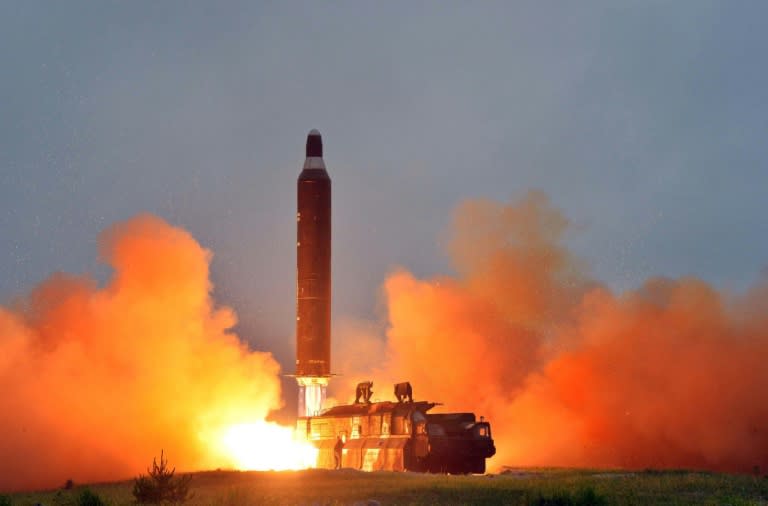China muted after Tillerson vows islands blockade
China offered a muted response Thursday after Donald Trump's secretary of state pick Rex Tillerson warned the US would stop it from using its artificial islands in the South China Sea. Tillerson's comments, during his confirmation hearing in the US senate, are the latest salvo the Trump team has aimed at Beijing. "We're going to have to send China a clear signal that, first the island building stops, and second, your access to those islands is also not going to be allowed," Tillerson told the panel. Beijing has fuelled regional tensions by turning tiny, ecologically fragile reefs and islets in the strategically vital South China Sea into artificial islands hosting military facilities. The former ExxonMobil chief said China's building in the disputed waters and its declaration of an air defence identification zone over the Japanese-controlled Senkaku islands in the East China Sea were "illegal actions". "They are taking territory or control or declaring control of territories that are not rightfully China's." Beijing asserts a claim to almost the whole of the South China Sea, based on a "nine-dash line" dating to 1940s-era maps. An international tribunal -- whose jurisdiction Beijing rejected -- ruled last year that there was no legal basis to such claims. Tillerson added that "building islands and then putting military assets on those islands is akin to Russia's taking of Crimea." -- 'Conflict with American interests' -- Chinese foreign ministry spokesman Lu Kang offered a measured response to the comments during a regular press briefing, saying that China has "the full right" to conduct activities in the region. “The South China Sea situation has cooled down and we hope non-regional countries can respect the consensus that it is in the fundamental interest of the whole world,” he said. Taken at face value Tillerson's threat to deny access to China is not a "credible objective" for the US and may be "counterproductive", Rory Medcalf, head of the National Security College at the Australian National University told AFP. The US has military power in Asia but relatively few ships, he said, making a blockade unrealistic, and "it's very difficult to imagine the means by which the United States could prevent China from accessing these artificial islands without provoking some kind of confrontation". Tillerson's remarks came amid rising tensions between the two countries as Trump has suggested Washington could jettison its decades-old "One China" policy, and the Chinese military has ramped up activities in a show of strength, with its Liaoning aircraft carrier passing through the Taiwan Strait on Wednesday. Tillerson said the US should affirm to Taipei it will live up to its commitments to Taiwan, which could require the US to intervene militarily if China attacks the island, but added he did not know of any plans to alter the "One China" policy. In his remarks to the Senate Foreign Relations Committee he also criticised China for failing to sufficiently help rein in North Korea. "China has proven a willingness to act with abandon in the pursuit of its own goals which at times has put it in conflict with American interests. We have to deal with what we see, not what we hope," Tillerson said. "It has not been a reliable partner in using its full influence to curb North Korea," he added. Beijing is a close Pyongyang ally and is seen as critical in helping contain the pariah state's nuclear activities. But the former oil executive said disagreements with Beijing on some issues should not preclude "productive partnership" on other matters. "I do agree with him on that," China's foreign ministry spokesman Kang said. While Trump and his surrogates have repeatedly blasted Beijing over trade policy and the South China Sea, official reaction to the incoming president has been measured, with the foreign ministry emphasising the positive aspects of bilateral ties between the world’s two largest economies. But state media, which authorities often use to telegraph policy positions, has met Trump’s rhetoric with attacks of its own, with a stream of editorials lambasting “inability to keep his mouth shut” and his “provocation and falsehoods”.







